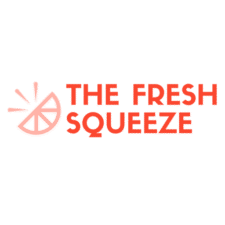After giving birth, your body begins an incredible healing process. But with round-the-clock feedings, sleepless nights, and the emotional adjustments of new motherhood, it’s easy to feel drained. Postpartum nutrition plays a huge role in helping your body recover, restoring strength, and giving you the energy you need to care for both yourself and your baby.
Here’s a guide to the key nutrients and foods that support healing in the weeks and months after delivery.
1. Iron: Rebuilding Strength 💪
Blood loss during delivery can leave many new mothers low in iron, which may cause fatigue, weakness, and even dizziness.
Best sources of iron:
-
Lean red meat, chicken, turkey
-
Lentils, beans, and chickpeas
-
Spinach and other leafy greens
-
Fortified cereals
Tip: Pair plant-based iron with vitamin C (like citrus or tomatoes) to boost absorption.
2. Protein: Repairing and Restoring 🥚
Protein is the building block your body needs to repair tissues, support muscle recovery, and maintain energy. It also helps with milk production if you’re breastfeeding.
Protein-rich foods to include:
-
Eggs and Greek yogurt
-
Chicken, turkey, and fish
-
Tofu, tempeh, and legumes
-
Nuts, seeds, and nut butters
Aim to include a source of protein with every meal or snack.
3. Omega-3s: Supporting Brain and Mood 🐟
Omega-3 fatty acids aren’t just great for your baby’s brain—they’re essential for your postpartum recovery too. They help reduce inflammation, support hormone balance, and may lower the risk of postpartum depression.
Sources of omega-3s:
-
Fatty fish like salmon, sardines, and mackerel
-
Chia seeds, flaxseeds, and walnuts
-
Omega-3 supplements (check for quality, especially if breastfeeding)
4. Hydration: Your Unsung Hero 💧
With breastfeeding, hormone shifts, and sleep disruption, dehydration is easy to overlook—but it can worsen fatigue, headaches, and mood swings.
Hydration tips:
-
Keep a water bottle nearby at all times.
-
Herbal teas (like chamomile or rooibos) add variety.
-
Coconut water can replenish electrolytes naturally.
A good rule of thumb: drink enough water so your urine stays pale yellow.
5. Smart Supplementation 🌿
Even with a balanced diet, some nutrients may need a boost postpartum. Always check with your healthcare provider, but common recommendations include:
-
Continuing your prenatal vitamin
-
Iron (if blood levels are low)
-
Omega-3s (if diet is lacking in fish)
-
Vitamin D (especially if you live in low-sunlight areas)
Putting It All Together: A Day of Postpartum Nutrition 🍽️
Here’s a sample day that balances healing foods with energy support:
-
Breakfast: Scrambled eggs with spinach + whole-grain toast + orange slices
-
Snack: Greek yogurt topped with walnuts and chia seeds
-
Lunch: Grilled salmon + quinoa + roasted veggies
-
Snack: Hummus with carrots and cucumber + herbal tea
-
Dinner: Lentil soup + mixed green salad with avocado
-
Hydration: Water throughout the day + coconut water post-nursing
Final Thoughts
Postpartum recovery isn’t about dieting or bouncing back—it’s about nourishing your body so you can heal, restore energy, and feel your best. By focusing on iron, protein, omega-3s, and hydration, you’ll not only support your own recovery but also give yourself the strength and stamina to enjoy this new chapter of motherhood.
Remember: caring for yourself is just as important as caring for your baby. ❤️

